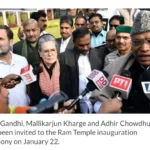LlIn a pivotal development, the Archaeological Survey of India (ASI) has submitted a comprehensive survey report on the Gyanvapi mosque complex to the Varanasi district court. This report, shrouded in secrecy within a sealed cover, is poised to play a decisive role in the ongoing legal discourse surrounding the historic site.
The backdrop of this report lies in the Allahabad High Court’s recent dismissal of pleas contesting the viability of a 1991 lawsuit. This legal endeavor seeks the “restoration” of a temple believed to be beneath the Gyanvapi mosque. The ASI’s involvement was necessitated after Hindu petitioners passionately contended that the mosque, dating back to the 17th century, was constructed atop a pre-existing Hindu temple.
Representatives from both the Hindu and Muslim parties were present during the submission of the ASI report. The court, recognizing the gravity of this matter, has scheduled December 21 as the date for the public revelation of the report. This event is anticipated to shed light on the historical and archaeological aspects that underpin the Gyanvapi mosque complex, standing adjacent to the revered Kashi Vishwanath temple.
The Gyanvapi mosque has become a focal point of a longstanding legal dispute, with implications reaching beyond the confines of the courtroom. The impending verdict holds significance for both Hindu and Muslim communities invested in the cultural and religious heritage encapsulated by this ancient site.
As the legal proceedings unfold, the Gyanvapi mosque saga remains a nuanced narrative, weaving together historical, religious, and legal threads that contribute to the rich tapestry of India’s cultural heritage.







